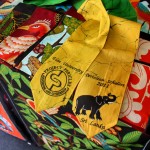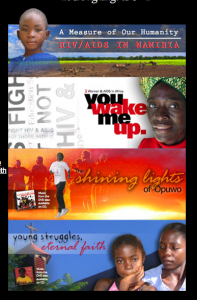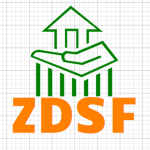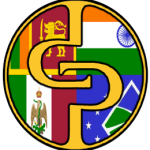“Even when it looks like a lot of standing (or sitting) around talking, aid is difficult and often intensely cerebral work. It is about bridging cultural and communication gaps between people and between communities, and the only way to do that is by investing in time and patience.” (J in Letters I’ve Written Never Meaning to Send “
History and overview of the efforts to organize Periclean Scholars alumni
A note from the founding director, Tom Arcaro and with comments by Natasha Christensen, ’07.
 One of the most basic premises of the Periclean Scholars program is that whenever possible Periclean initiatives should be sustainable in the long-term. This includes partnerships made by each Class in terms of continually communicating with, materially supporting, and continuing to vet and be vetted by partner organizations and the individual representatives thereof. Though it would be far from accurate to say that we had any idea what the future of the program held, the Class of 2006 had the vision to put the Periclean Scholars Alumni Association (PSAA) in place, the original by-laws of which were written by David Higham, ’06.
One of the most basic premises of the Periclean Scholars program is that whenever possible Periclean initiatives should be sustainable in the long-term. This includes partnerships made by each Class in terms of continually communicating with, materially supporting, and continuing to vet and be vetted by partner organizations and the individual representatives thereof. Though it would be far from accurate to say that we had any idea what the future of the program held, the Class of 2006 had the vision to put the Periclean Scholars Alumni Association (PSAA) in place, the original by-laws of which were written by David Higham, ’06.
The idea in those early years was that there would be a regular business meeting of the PSAA on campus at Homecoming, and that indeed did happen in the first several years (’06-’08).
A visionary and transformative gift
An important event in the history of the PSAA happened in April of 2007. Dr. Lambert made a connection with Elon parent (’07) and Redwoods Group Founder and CEO Kevin Trapani. After several conversations between myself, Mr. Trapani and his financial officers, it was agreed that supporting the PSAA was our top priority. The thinking at that time –and continuing today- is that a commitment to the PSAA would both (i) ensure the sustainability of partnerships and (ii) give undergraduates a huge challenge to take extraordinarily seriously the process of vetting and connecting with partners since the connection would last not just for their undergraduate years but well beyond.
In the spring of 2007, the Redwoods Group made a $125,000 endowment gift to the program, allowing for roughly $5,000 per year intended to support the partnerships made by each Class. The vision was that as more graduating Classes came on-board, it would be possible, through matching donations from alumni, to continue supporting all partnerships in perpetuity at a moderately robust level (e.g., $1,000 per Class partner/year).
From fall of 2007 on, I began authorizing wire transfers or checks to current and past partners (Catholic AIDS Action, Hope for Honduran Children, Schools for Chiapas, for example) on a yearly basis, more or less evenly distributing the annual funds to partners, as they accumulated. The yearly meetings of the PSAA at Homecoming were not functioning the way that we had intended them to, due to minimal and failed communication beforehand and low turnout during; this is where and when decisions for disbursement were to be made. I take majority responsibility for this failure, though my wont was to make space for alumni ownership of this activity. I made a concerted effort to contact key members from each Class before authorizing any fund transfers to their partners.
Anita
One special case is Anita Isaacs, who is a two-time Periclean-in-Residence and a major focus within the documentary series produced by the Class of 2006 and the focus of My Name Is Anita, completed in 2009. PSAA funds have supported both the organizations with which she has worked and her personally, in the last several years as we have supported her decision to go back to school and get her degree in social work. The PSAA has supported her tuition, books and some living expenses. She has written several updates for our blog and continues to do well now, nearly 20 years after being diagnosed HIV positive. All members of the Class of 2006 with which I have talked have enthusiastically endorsed this support to Anita.
back to school and get her degree in social work. The PSAA has supported her tuition, books and some living expenses. She has written several updates for our blog and continues to do well now, nearly 20 years after being diagnosed HIV positive. All members of the Class of 2006 with which I have talked have enthusiastically endorsed this support to Anita.
Periclean Project: travel with alumni back to counties of focus
After discussions with 2009 alumni and their Mentor Steve Braye regarding the follow-up to our 2009 Habitat build near Ndola, we furthered conversations about how to remain connected beyond a yearly grant from the PSAA to Habitat for Humanity-Zambia. During our visit in 2009, we had deep connections with Voster Tembo of Habitat and various village leaders in Kawama and had extensive discussions about how return travel could go beyond the service-tourism of the traditional Habitat for Humanity-International build.
In 2011, I conceived of the “Periclean Project” that was intended to bring together Periclean alumni, current Pericleans and Mentors in service-related travel. The idea was to have a “Periclean Project” at least every other year to a country of focus from an alumni Class. Working with Elon Alumni relations, we put the word out to Periclean and non-Periclean alumni with current Pericleans for a second build in the Ndola region (Kawama) of Zambia and again coordinated with Voster Tembo. Our recruitment efforts aimed at alumni fell short, but we were able to amass a great team of current students and returned to Kawama in May/June of 2011. This second visit to the Copper Belt deepened all partnerships in the region and have now yielded, in part because of the amazing work of Voster Tembo, the creation of the Zambian Development Support Foundation
 (ZDSF), now beginning its second year of making micro-loans, mostly to small groups of women in the region.
(ZDSF), now beginning its second year of making micro-loans, mostly to small groups of women in the region.
The future of the Periclean Project at this point is uncertain and in order to move forward will take effort by the Director, past or current Mentors and the Office of Alumni relations. The idea of a service related alumni excursion is perhaps more viable now that we have more and more alumni that wish to remain active with Elon and our commitment to service.
Alternative and creative pathways
The Class of 2010 created a unique pathway for alumni engagement and efforts to sustain and enhance the Class partnerships. To a large degree, the Class was successful in branding themselves as the “Ghana Pericleans” and in initiating lateral entry from post-2010 classes. The concept was that the Mentor could recruit and work with Periclean-minded younger undergraduate students to move forward Class initiatives after the Class had formally graduated. This initiative was very time-intensive for the Mentor.
This initiative was used to a lesser degree with the Classes of 2011 and 2012 and has now been officially phased out. The Classes of 2010, 2011, and 2012, led by their Mentors, have remained in contact via various social media and have remained very involved in their initiatives. Several recent Mentors have served the function of sending more-or-less regular update and news emails out to alumni from their Classes.
Up until 2010, there has been a Periclean Newsletter produced on a semi-regular basis by several Classes, and these have always been sent out by me (the Director) to all current and alumni Pericleans and, beginning in 2012, to all friends and partners of Periclean Classes (including a self-selected number of parents). The Class of 2011 took this initiative to a higher level and, in 2009, began making sure that the newsletter was published on a much more regular basis. The newsletter served a very important function of keeping the alumni and partner base informed.
Beginning with the Class of 2010, every Class has established a committee, typically in their senior year, with the specific charge to make plans to insure that the partnerships, initiatives and indeed life of the Class are sustained past graduation. To my knowledge, each of those Classes, with varying levels of success, have maintained contact with each other and with their partner over the years past graduation. The Mentors play a key role in this, and it must be pointed out that, led by Dr. Heidi Frontani, all of these Mentors (Drs. Arangala, Kamela, and Nienhaus) have done steady and important work to maintain communication and activity.
One recent note of success is that the Class of 2013 was able to successfully “hand off” the Hogares Sanos (“Healthy Homes”) partnership with Alamance County Hispanic women to the Class of 2016.
Recycling
A note related to the sustainability of the Class initiatives is that beginning with the Class of 2013, our long-term plan is to have new Classes “recycle” the countries of focus from past Classes, hence, for example, the Class of 2017 is going back to Namibia, the country of focus for the Class of 2006. Other repeat countries include Mexico (’08 & ’13) and Honduras (’07 & ’16). In a historic step for the program, Dr. Steven Braye, Mentor, ’09, will lead the Class of 2018 back to Zambia, marking the first two-time Mentor leading a Class back to their country of focus.
To be clear, this recycling means only in the sense of going back to the same country of focus. Each Class bears the responsibility of researching, vetting, contacting and creating their own partnerships.
All new Mentors now are recruited based on their willingness to go back to a past country of focus though it is made clear that partnerships the Class forges need not necessarily be those made by the Class that originally went to that country.
A new era: the blog
In fall of 2012, a pan-Periclean blog was created that was (and is) intended to be a “one stop shopping” site for all things Periclean, including regular content from current and alumni Classes. Regular postings began to appear in spring 2013 and in Fall of 2013 I urged all Classes to begin making weekly updates regarding Class activities, and to some extent this happens. The blog has become the functional equivalent to, and now the de facto replacement for, the newsletter. I regularly send out emails to all alumni and friends with the link to the blog and short news items.
Periclean Foundation: conceived in 2005, brought to life in 2012
The Class of 2012 achieved a landmark initiative that had been imagined ever since the Class of 2006: the creation of the Periclean Foundation. Up until this point, the only place for funds to go that were raised by any current or alumni Class was back into official Elon University Periclean Scholars accounts, and then sent by wire (or by check) to partner accounts. The Periclean Foundation entity is a stand-alone 501c3 non-profit organization that now has a bank account and a PayPal account attached to it.
David Higham, the new Chair of the Periclean Foundation, reports that there have been at least two alumni that have set up regular monthly donations through Paypal, and our goal for this year (2014) is to have at least 10 individuals making regular gifts through this method.
There have been two important meetings with representatives from University accounting related to alumni giving. In the past, the explicit call was for alumni to make donations to Elon, earmarked for Pericles, with the understanding that these donations would then go out to their partners. This practice has now changed for a variety of reasons. Beginning in 2013, all remaining balances in each Class’ Elon account that is intended to support their partner(s) are transferred to the Periclean Foundation.
Outreach via video
 I have worked with alumnae Natasha Christensen over the years on sustainability of alumni activity, particularly in helping to produce two videos, the links to which were sent to all Pericleans. These videos were moderately successful. This one was made live in November 2010 and outlines the history behind the Redwoods gift and the way alumni were able to contribute to the PSAA, and this one, uploaded in October 2011, stars Natasha and was taped in 2011 when she came from Washington, DC to deliver the alumni speech at the Celebrating Periclean Scholars event.
I have worked with alumnae Natasha Christensen over the years on sustainability of alumni activity, particularly in helping to produce two videos, the links to which were sent to all Pericleans. These videos were moderately successful. This one was made live in November 2010 and outlines the history behind the Redwoods gift and the way alumni were able to contribute to the PSAA, and this one, uploaded in October 2011, stars Natasha and was taped in 2011 when she came from Washington, DC to deliver the alumni speech at the Celebrating Periclean Scholars event.
Plans and thoughts as we move deeper into our second decade
As of this writing, Program Assistant Catherine Parsons is using the Periclean work-study student to generate a database of all Pericleans and friends of Pericleans, a small step intended to facilitate forward movement, but there is so much more to be done. I believe that with renewed vision, strong leadership from key alumni, and some creative thinking from all Pericleans and friends, the future of the PSAA and of the Periclean Foundation can be by an order of magnitude more robust than at present.
Here are a few questions to consider related to moving forward:
It would also ensure a way to “prioritize” efforts. It is easy to get distracted by how much you want to do and not focus as much on what is most needed and/or sustainable in the long run.
Auditing?
We have only internal and mostly anecdotal evidence that our outreach is effective. Should we consider connecting with an outside auditing entity charged with examining the impact of our partnerships? This may be a good way forward. As we saw with the class of 2007’s partnerships in Honduras – sometimes the personal relationships we build throughout working on the projects make you think everything you are doing is going towards a just cause but it could fall short. My only question with this would be how much the auditing entity would charge and if this would be something we would want to include in reporting, etc. on a regular basis (annually, etc.).
Perhaps set up conferencing so you could host 2 at once – 1 in DC and 1 in NC to maximize participation…
How can we better integrate the current Steering Committee body into the process of moving forward along the lines above?
Mentor compensation?
How can the past Mentors be financially and otherwise compensated for the extra duties they have performed and continue to perform? None, understandably, agreed to be “Mentors for life” and though all are giving extra of themselves, that model –depending on the kind hearts of key faculty – is perhaps not sustainable.
Look at the Young Alumni Association model. I believe maintaining as much hands-on engagement within our partnerships AND the communities we are all living in now is a good way to keep the intent behind Pericles alive and people invested/engaged.
From here, where?
Finally, what are the immediate next steps that need to be taken?
I know I [Natasha] briefly discussed doing a documentary or photo-book, etc. of the projects with you at one point but I continue to believe it would go a long way to showing how engaged and how far that “global citizenship” has taken scholars (while at Elon and beyond). We all must more aggressively embrace the responsibility of the legacy of program.
I call upon all of you who read this document to (1) help me correct any factual errors or errors of omission I may have inadvertently outlined and (2) make this a living document by adding more detail where needed and proposing specific actions that we can make in the coming weeks and months.

 Follow
Follow